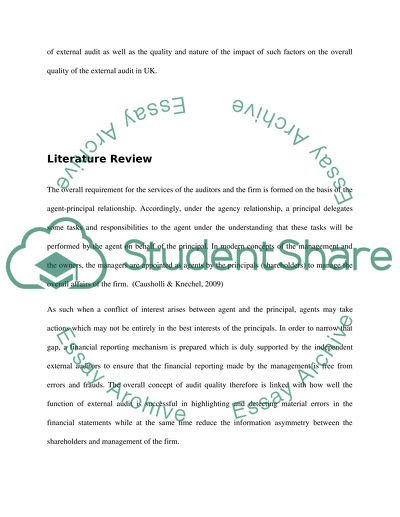Cite this document
(“The main factors affecting the quality of the external audit in the UK Dissertation”, n.d.)
Retrieved from https://studentshare.org/gender-sexual-studies/1422972-the-main-factors-affecting-the-quality-of-the
Retrieved from https://studentshare.org/gender-sexual-studies/1422972-the-main-factors-affecting-the-quality-of-the
(The Main Factors Affecting the Quality of the External Audit in the UK Dissertation)
https://studentshare.org/gender-sexual-studies/1422972-the-main-factors-affecting-the-quality-of-the.
https://studentshare.org/gender-sexual-studies/1422972-the-main-factors-affecting-the-quality-of-the.
“The Main Factors Affecting the Quality of the External Audit in the UK Dissertation”, n.d. https://studentshare.org/gender-sexual-studies/1422972-the-main-factors-affecting-the-quality-of-the.


